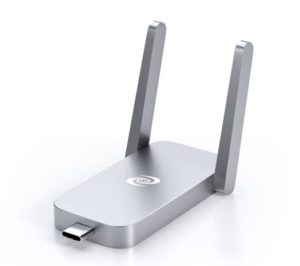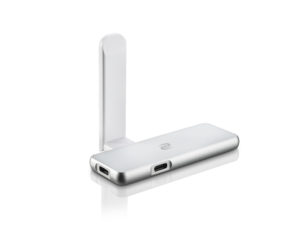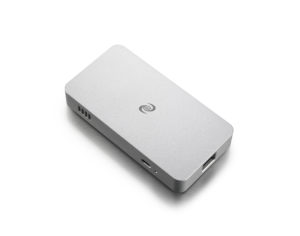When Physical Protection Meets Virtual Privacy: Why Security Teams are Turning to d.VPN Routers
(Sponsored by Deeper Network: Web 3.0 infrastructure of the users, by the users, for the users)
Stalkers don’t need binoculars anymore. Your digital footprints reveal more about your physical location than any surveillance van ever could – a reality that’s forcing a radical shift in how we think about personal security.
High-profile individuals – from executives to activists, politicians to journalists – are discovering their traditional security measures fall short in a world where digital traces can compromise physical safety. Consider a domestic violence survivor: physical distance from their abuser means little if their IP address reveals their new city, or their fitness app exposes their daily running route.
Deeper Connect Air: The World’s Lightest Travel d.VPN Router
This intersection of threats demands new protection approaches. Executives need integrated systems that guard against both cyberstalking and physical surveillance. Human rights defenders require tools that mask both their server connections and their geographic locations. Even witness protection programs now focus as much on scrubbing digital histories as they do on relocating participants.
Enter the latest evolution in privacy technology: decentralized VPN routers. Unlike traditional VPNs that route traffic through corporate servers, these devices create peer-to-peer networks where users share bandwidth and resources. Think of it as the difference between hiding in a corporate safe house versus disappearing into a crowd – there’s no central authority tracking your movements.
For travelers, dVPNs offer compelling advantages. One-time hardware purchases replace monthly subscriptions. The decentralized network resists censorship and tracking. No single company controls your data or could be compelled to reveal your activities.
However, it is worth noting that speeds vary based on available peers, and setup requires more technical knowledge than traditional VPNs. The trade-off is clear: greater privacy and control in exchange for some convenience.
 Deeper Connect Mini – Best Performance Web3 Router
Deeper Connect Mini – Best Performance Web3 Router
The key features that matter most complement physical security needs:
- Lightweight, portable hardware that doesn’t slow you down
- Battery life that lasts through surveillance-heavy situations
- Quick setup when you need to change locations fast
- Enterprise-grade encryption that masks your digital presence
- Multi-device support to protect your entire digital footprint
Whether you’re a CEO handling sensitive negotiations abroad, a journalist protecting sources in hostile territory, or someone who simply values their privacy, the convergence of physical and digital security is no longer optional – it’s essential. The choice of tools, whether centralized or decentralized, should align with your specific threat model and technical comfort level.
The future of protective security lies not in choosing between physical and digital safeguards, but in implementing solutions that seamlessly protect both. Your [client’s] safety depends on it.
Deeper Connect Pico – Pocket-Sized d.VPN Router (1.7 Oz)
The Technology: Centralized vs Decentralized Solutions
Decentralized VPN (dVPN) Technology: A dVPN differs from traditional VPNs by operating on a peer-to-peer network rather than centralized servers. Users share bandwidth and resources, creating a distributed network. This approach offers several advantages:
- No single point of failure
- Typically no subscription fees, just one-time hardware costs
- Greater transparency since there’s no central authority controlling traffic
- Often more resistant to censorship and blocking
Key Features to Look for in Travel VPN Routers:
- Size and Portability – Should be lightweight and compact enough to carry easily
- Battery life and power options – Ideally supports multiple power sources
- Setup simplicity – Quick configuration for different networks
- Security protocols – Support for modern encryption standards
- Speed capabilities – Sufficient throughput for streaming and daily use
- Multi-device support – Ability to connect several devices simultaneously
DPR Mini SE – Best Value Home d.VPN Router
Centralized vs Decentralized VPN Comparison:
Centralized VPNs:
- Run by a single company
- Regular subscription payments
- Established providers with proven track records
- Company controls server locations and policies
- Often faster and more consistent speeds
- May keep some logs depending on provider
Decentralized VPNs:
- Community-driven network
- Usually one-time hardware purchase
- No central authority
- More resistant to censorship
- Variable speeds based on available peers
- Generally no-logs by design
- More technical understanding may be required
When choosing between them, consider:
- Your technical expertise
- Privacy requirements
- Budget (ongoing vs one-time cost)
- Need for consistent speeds
- Importance of censorship resistance
Marshal is a is a powerful digital media platform for Security, Resilience and Defence solutions. We help drive discovery of the Resources, Technologies, Training, Events, Publications and Personnel that manage risk, by automating the rapid connection of exhibited capability with stakeholder interests.


